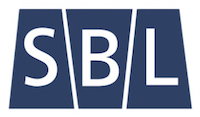
As freelancers, we are not just indexers but business owners—which means we have more responsibilities than just creating indexes. We are responsible for marketing, accounting, technical support, even filing. Even though any or all of this can be outsourced—even indexes can be subcontracted—it all still needs to be managed.
You can go with an analog system—I really love my bullet journal, and have refined it to help me keep track of each of my indexing jobs and standard checklists. Many long-time indexers have developed project sheets and filing systems and spreadsheets that keep them organized.
A digital system like Trello or DropTask allows you to collect everything in one spot, and connects to other services you use, like email and calendars. Same for Evernote or Google’s suite of cloud-based products, though it’s less integrated than a board-based system like Trello. Simple to-do list apps can send you reminders and track appointments.

When assessing project management systems, there are a few decisions you need to make.
What you need and what you don’t
Ask yourself if a management solution will create more work than it saves. It may create more short-term headaches but result in a more streamlined system down the road, or it just may be overkill. You may only need a simple to-do list app. Also, what are you willing to pay for? The free version of many products will be more limited, but most of us aren’t running complex organizations, either.
Define the scope
Do you want something for a single indexing job, or something to help you track every aspect of your business? Decide what you want, and go from there.
Teamwork
Project management systems are great for keeping track of subcontractors—assignments, deadlines, specialties, accounting—and for working on multi-indexer team projects.
Going solo
You can create systems to manage multiple projects you are indexing, especially if you are scheduled several months in advance. It’s also handy when you have long-term projects that come in batches, such as a journal.
What to track
You want a flexible system, so you can put in whatever is important to you. Most online systems will let you keep track of due dates, tasks, subtasks, team members, notes, and pretty much anything you can think of.
- Invoices in and out
- Deadlines and batch delivery dates
- Daily page quotas and targets
- Timesheets
- Editing and other standard checklists
- Correspondence
- General business planning and projections
- Marketing plans
- contact list
- targets
- scripts and email templates
- website update tasks
- blog and social media notes
- testimonials
Is there something you use that you love? I’d love to hear about it. Right now, I use a combination of my bullet journal, Dropbox, a simple spreadsheet for social media marketing, and Scrivener for blog posts. It’s kind of a mess, which is why I’m writing this!



Leave a Reply